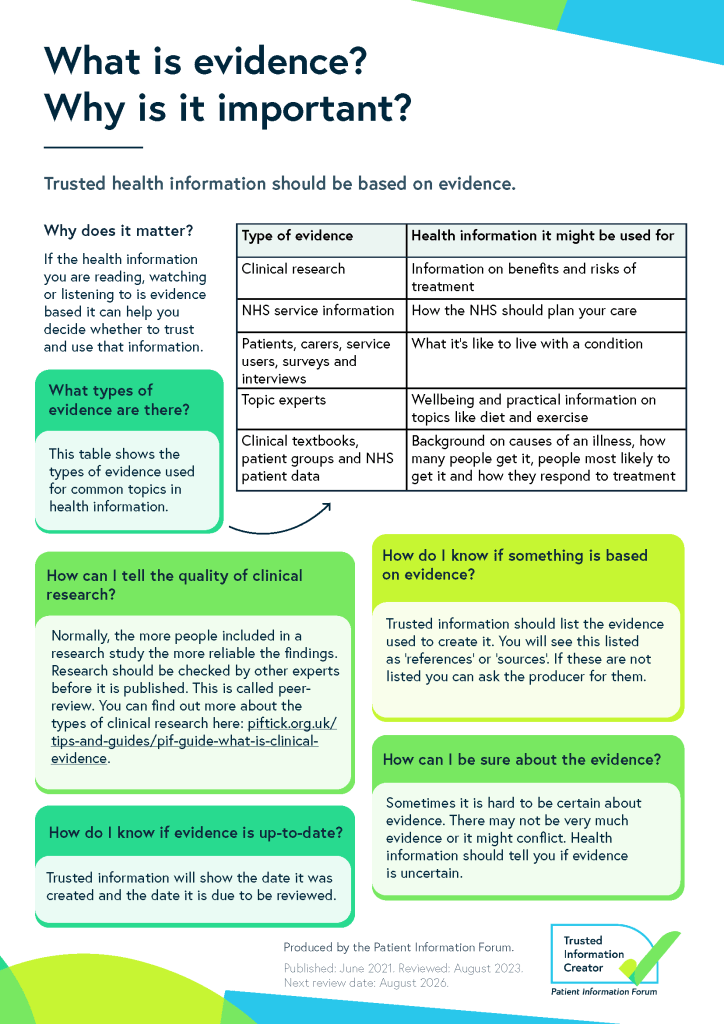PIF TICK guide
What is evidence? Why is it important?
Trusted health information should be based on evidence.
Why does it matter?
If the health information you are reading, watching or listening to is evidence-based it can help you decide whether to trust and use that information.
What types are there?
This table shows the types of evidence used for common topics in health information.
| Type | Health information it might be used for |
|---|---|
| Clinical research | Information on benefits and risks of treatment |
| NHS service information | How the NHS should plan your care |
| Patients, carers, service users, surveys and interviews | What it’s actually like to live with a condition |
| Topic experts | Wellbeing and practical information on diet and exercise |
| Clinical textbooks, patient groups and NHS patient data | Background on causes of an illness, how many people get it, people most likely to get it and how they respond to treatment |
How do I know if something is evidence based?
Trusted information should list the evidence used to create it. You will see this listed as ‘references’ or ‘sources’. If these are not listed you can ask the producer for them.
How can I be sure?
Sometimes it is hard to be certain. There may not be very much evidence or it might conflict. Health information should tell you if evidence is uncertain.
How do I know it is up to date?
Trusted information will show the date it was created and the date it is due to be reviewed.
How can I tell the quality of clinical research?
Normally, the more people included in a research study the more reliable the findings. Research should be checked by other experts before it is published. This is peer-review. You can find out more about the types of clinical research here.
Download the PDF guide
What is evidence? Why is it important?
Published: June 2021
Reviewed: August 2023
Next review date: August 2026









